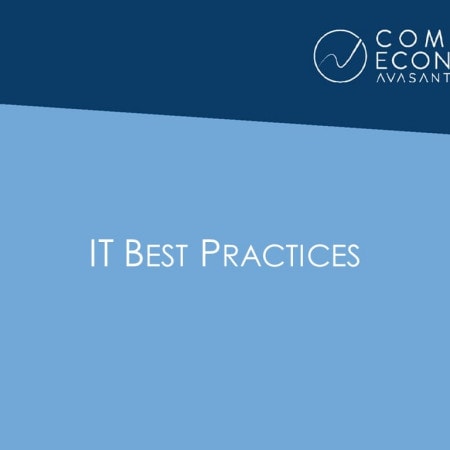-

Consumer Concerns About Credit Card Numbers (June 2002)
Americans are very concerned about someone obtaining their credit, debit, or check card numbers, and with good reason. According to a recent Paymentech survey of 800 adults, almost half the population is more concerned about someone obtaining their credit, check, or debit numbers than about losing their car keys, checkbook, appointment book, cell phone, or even having someone hack into their computer files. Yet 35% of those polled said they are just a little or not at all concerned that many receipts expose entire account numbers and expiration dates.
June, 2002
-

Information Security Abbreviations and Acronyms (June 2002)
The following list shows commonly used information security abbreviations and acronyms. This list is helpful to IT managers who do not have an extensive background in information security.
June, 2002
-

eBusiness Requires Security, Privacy, and Encryption (June 2002)
As technology expands, so do ways to abuse it. Not only do companies have to deal with a multitude of malicious Internet viruses, they must also deal with intellectual property (IP) and security issues. Particularly in light of recent events, businesses must be critically aware of the issues surrounding computer protection.
June, 2002
-

The Internet Is Not Making Paper Go Away (April 2002)
Despite the immense popularity of paperless media such as email and the Internet, a study by Lexmark reveals that the need for printing remains as strong as everâand is growing. Results of the study also offer details on home and office printing and the future of printing technologies and applications, including public preferences for wireless printing, while dispelling a number of popular misconceptions about printing trends. The survey, conducted in 4Q01 by the opinion and market research firm SWR Worldwide, included 500 respondents who use computer printers both at home and in the workplace on a regular basis.
May, 2002
-

Channel Management Software Strengthens Ties to Partners (Mar 2002)
Channel management software (CMS) aims at improving suppliers' control of their distributor and third-party sales network. Above all, CMS provides the tools to monitor and manage resellers who represent your company to customers. CMS can boost the loyalty resellers have to your brand and at the same time improve operations and increase sales. Resellers win also through additional sales leads to customers who have already demonstrated an interest in your products.
May, 2002
-

Value Add Distribution in Manufacturing Illustrates Ebusiness Transaction Density Patterns (Feb 2002)
One of the big challenges in planning, creating, and supporting electronic supply chain systems (ESCS) is to determine the volume that a system must be able to handle and how many organizations the system must support.
May, 2002
-

Resolve the Domainland Dilemma (Sep 2001)
Seven new top-level domains (TLD) go live fall 2001. These new Internet addresses will complicate the lives of IT managers--especially those whose companies are e-commerce merchants. Other companies also need to be concerned because of impacts that the new domains will have on intellectual property and Internet browsers.
May, 2002
-

Top-Level Domains Challenge IT Managers (Apr 2001)
If they have not started beforehand, by June 2001 many IT managers will be thinking frequently about top-level domains (TLD). Among the causes for their increased concern will be seven recently approved TLDs, more use of country suffixes, copyright protection, and the growing trend toward domain names in foreign languages. All of these events will require more effort to maintain control over the increased complexity of Internet usage.
May, 2002
-

The NBA: Using the Internet to Increase Revenue
The long-term goals of any e-commerce website are to increase revenue, increase traffic, and establish the company name while, at the same time, expanding to provide broader services and more products to the marketplace. It is a tall order for any company and especially optimistic when the company's goal is to achieve a leading role in web-based interactive streaming media.
May, 2002
-

Seeking the Key to Successful B2B Collaboration (Dec 2001)
The driver for B2B collaboration, despite numerous obstacles and failures, is simple to appreciate: the payoff from these efforts is significant increases in revenues during the period of 2002 through 2006. Furthermore, these returns are independent of company size. Large companies can gain through such collaborations by means of establishing exchanges with suppliers and business partners that can generate revenues themselves, along with reduced costs, increased efficiencies, faster times to market, and improved product quality. Small companies, on the other hand, can benefit from participating in exchanges through entry into markets that they could not penetrate on their own.
May, 2002
-

Questions and Answers on the Privacy Provisions of the Gramm-Leach-Bliley Act (Jan 2002)
Why does the Privacy Rule sometimes refer to consumers and other times to customers? Aren't customers also consumers? All customers are consumers, but not all consumers are customers. The rule distinguishes consumers from customers because it is the banks responsibilities to provide notices to consumers and to customers differ in several respects.
May, 2002
-

FTC “Operation Detect Pretext” (Apr 2001)
The staff of the Federal Trade Commission's Division of Financial Practices announced in January 2001 the beginning of "Operation Detect Pretext," an effort to protect consumers from firms that obtain their customer information under false pretenses--a practice known as "pretexting."
May, 2002
-

The Children’s Online Privacy Protection Act of 1998 (Jul 2000)
In June 2000 the United States Appeals Court ruled that the Children's Online Privacy Protection Act of 1998 (COPPA) was unconstitutional and violated the first amendment. There are mixed opinions about the ruling, but we suggest that all Web marketers remain in touch with the issue and understand the implications and requirements of COPPA.
May, 2002

 Grid View
Grid View List View
List View